
Building Climate Resiliency: Empowering Community Health Workers Through Education
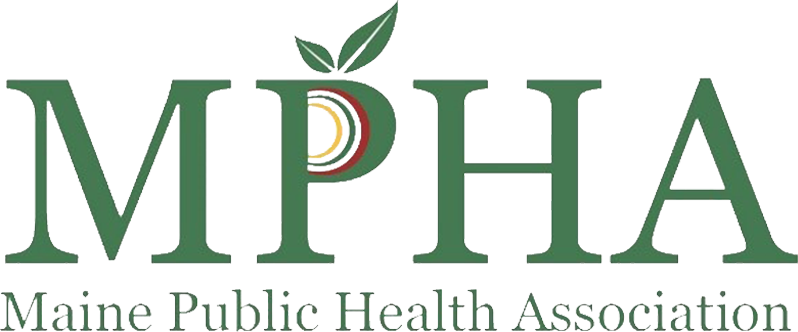
Course Information
- Audience: All public health professionals working in nonprofits, healthcare, educational institutions, government and private sector
- Format: Webinar
- Date/Time: Thursday, February 6, 2025, 12pm
– 1pm ET
- Price: Free
- Length: 1 hour
- Credential(s) eligible for contact hours: Sponsored by New England Public Health Training Center (NEPHTC), a designated provider of continuing education contact hours (CECH) in health education by the National Commission for Health Education Credentialing, Inc. This program is designated for Certified Health Education Specialists (CHES) and/or Master Certified Health Education Specialists (MCHES) to receive up to 1 total Category I continuing education contact hours. Maximum advanced-level continuing education contact hours are 1. Provider ID: 1131137 Event ID: SS1131137_C19IMHIC.
If you are not seeking a CHES/MCHES contact hours, if you complete the post-test and evaluation, you will receive a Certificate of Completion. The Certificate will include the length of the course.
- Competencies: Health Equity Skills
- Learning Level: Awareness
- Companion Trainings: None
- Supplemental materials:None
- Pre-requisites: None
About this Webinar
This course explores strategies to build climate resiliency education for Community Health Workers (CHWs) and their communities. Led by Leslie Lorentzen, this webinar highlights innovative approaches to address the health impacts of climate change, with a focus on equitable solutions and collaborative practices. Attendees will gain insights into training and resources designed to empower CHWs to foster community well-being.
What you'll learn
At the end of the Webinar, participants will be able to:
-
Identify strategies for educating Community Health Workers on climate resiliency and explain how these strategies can be applied in their communities.
-
Summarize the key findings from the project and recommend best practices for future climate resiliency education for CHWs.
Subject Matter Expert
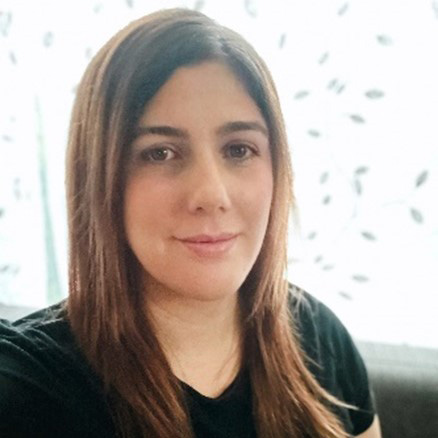
Leslie Lorentzen
Workforce Program Manager, Maine Primary Care Association
Leslie Lorentzen is passionate about advancing public health by leveraging innovative strategies, fostering collaboration, and using data to drive meaningful change. Her work focuses on tackling challenges in workforce development and addressing the health impacts of environmental and climate-related issues.
With a commitment to equity and inclusion, Leslie creates opportunities that empower diverse communities and advance sustainable, long-term solutions. She is dedicated to fostering collaboration and building inclusive initiatives that contribute to a more just and resilient public health landscape.
Registration
Select the Enroll Me button below to register for this recording. If you have any trouble accessing the recording, contact support@nephtc.org.
Acknowledgement: This project is/was supported by the Health Resources and Services Administration (HRSA) of the U.S. Department of Health and Human Services (HHS) under grant number UB6HP31685 “Regional Public Health Training Center Program.” This information or content and conclusions are those of the author and should not be construed as the official position or policy of, nor should any endorsements be inferred by HRSA, HHS or the U.S. Government.
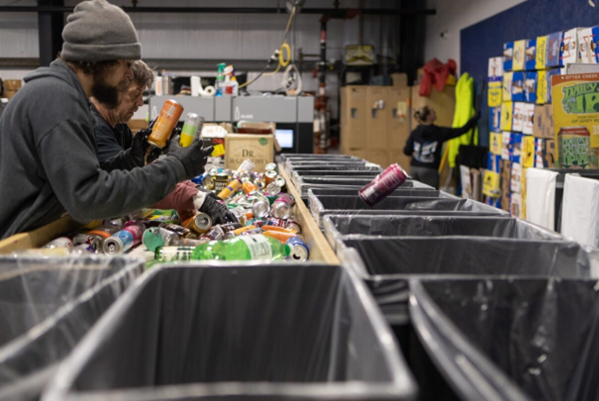
Economic and Environmental Significance of Maine's Bottle Bill
What are the economic and environmental impacts of Maine’s popular Bottle Bill?

Register
Course Information
- Audience: All public health professionals working in nonprofits, healthcare, educational institutions, government and private sector
- Format: Webinar
- Date/Time: Thursday, October 5th, 12:00 PM – 1:00 PM ET
- Price: Free
- Length: 1 hour
- Credential(s) eligible for contact hours: Sponsored by New England Public Health Training Center (NEPHTC), a designated provider of continuing education contact hours (CECH) in health education by the National Commission for Health Education Credentialing, Inc. This program is designated for Certified Health Education Specialists (CHES) and/or Master Certified Health Education Specialists (MCHES) to receive up to 1 total Category I continuing education contact hours. Maximum advanced-level continuing education contact hours are 1. Provider ID: 1131137 Event ID:PM1131137_EESMBB.
If you are not seeking a CHES/MCHES contact hours, if you complete the evaluations, you will receive a Certificate of Completion. The Certificate will include the length of the course. - Competencies: Policy Development and Program Planning Skills
- Learning Level: Awareness
- Companion Trainings: None
- Supplemental materials:PowerPoint and follow-up email with any links mentioned during presentation.
- Pre-requisites: None
- Technical Requirements: This webinar is hosted on the Zoom platform. Please refer to the Zoom System Specifications to ensure your system meets the minimum requirements for connecting.
About this Webinar
Over the past 45 years, Maine’s Bottle Bill program has been extremely effective at reducing litter, increasing recycling, creating jobs, funding charities, and reducing costs for municipalities and taxpayers. The Bottle Bill is a critical foundation for Maine’s recycling culture and remains as important and relevant as ever. Maine's legislature recently passed two bills to keep redemption centers in business and modernize the system. The discussions highlighted the special role that redemption centers play in keeping this program going, and the unique job opportunities they provide. Many of the owners do not turn much profit but do the work because they recognize it is environmental and social significance. The new laws will provide opportunity to further strengthen this program, reduce waste, and create more jobs.
What you'll learn
At the end of the recording, participants will be able to:
- Explain how the Bottle Bill supports jobs in Maine and what happens to the unclaimed deposits.
- Compare effectiveness of recycling and litter reduction with other types of recycling programs.
- Discuss potential of recently passed and future legislation.
Subject Matter Expert
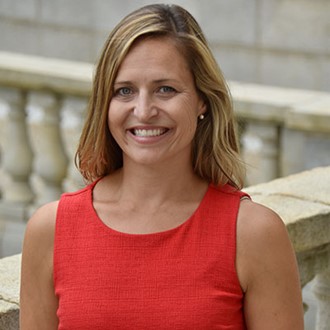
Sarah Nichols
Sustainable Maine Director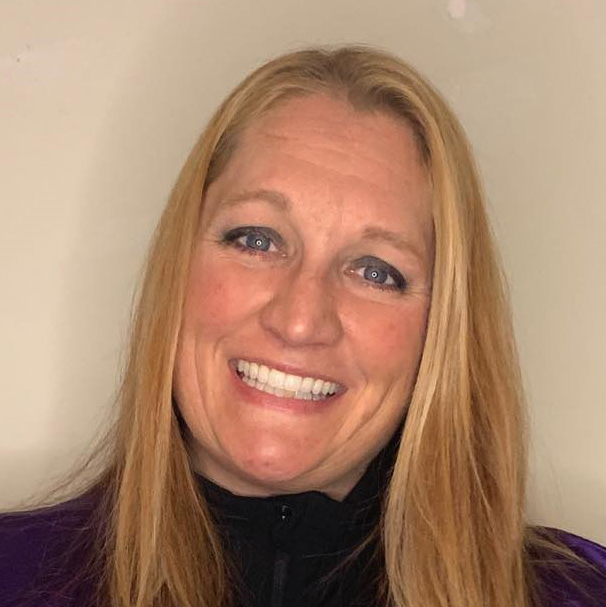
Shandra Rubchinuk
Co-Owner of Jansel Redemption Center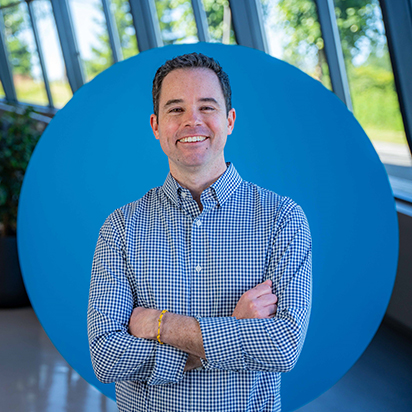
Mike Noel
Public Affairs Director, TOMRA
Sarah is a waste policy expert and leads NRCM’s local and state efforts to reduce waste and litter, encourage reuse, and increase recycling and composting in Maine. Prior to joining NRCM in 2014, she spent several years working to improve recycling programs in rural communities. She earned a master’s degree from the Bren School of Environmental Science and Management at the University of California Santa Barbara, where she specialized in environmental policy, and has a bachelor’s degree from the University of New Hampshire in Environmental & Resource Economics. Sarah is from Bath and resides in Cumberland.
Shandra has been in Maine for 22 years and lives in Winthrop. She opened a children’s second hand store in order to be at home with her children and saw a need to reduce reuse and recycle. The store has been open for 10 years, children Luke & Aalayah are now 11 & 13. Her partner Jason worked for his uncle for 23 years counting and sorting bottles at a redemption center that was open for 40 years. His uncle finally retired and the two opened JANSEL Redemption center in Jan of 2023. They streamlined the process and are busier than ever.
Mike is a corporate sustainability and public affairs expert with working experience across the public, private and civil sectors. At TOMRA, the world’s largest provider of recycling and reuse technology, Mike advises policymakers on packaging and textiles waste management and reuse policies. TOMRA operates in over 40 jurisdictions around the world with refillable and single-use container deposit return systems and EPR policies. The first project of TOMRA’s Reuse venture includes operating a reusable take-out packaging program in Denmark. Mike is the co- author of “Rewarding Recycling: Learnings from the World’s Highest Performing Deposit Systems”. Prior to joining TOMRA, Mike was a Strategy Director at Futerra where he advised multinationals including Google, Target and 3M on their circular economy and climate strategies. Mike studied Marketing and Environmental Policy at Fordham University where he led a successful campaign to establish the University's Sustainable Business program. Mike is based in Connecticut where he is busy trying to get his 5 year old twins to eat their vegetables.
Registration
Select the Enroll Me button below to register for this recording. If you have any trouble accessing the recording, contact support@nephtc.org.
Acknowledgement: This project is supported by the Health Resources and Services Administration (HRSA) of the U.S. Deparment of Health and Human Services (HHS) as part of award 2 UB6HP31685‐05‐00 “Public Health Training Centers.” The contents are those of the author(s) and do not necessarily represent the official views of, nor an endorsement, by HRSA, HHS or the U.S. Government.

Environmental Exposures and Health at the Local Level: A Case Study of Chelsea, MA | Part 1: Extreme Heat
What are some barriers to extreme heat mitigation in an environmental justice community in Massachusetts?

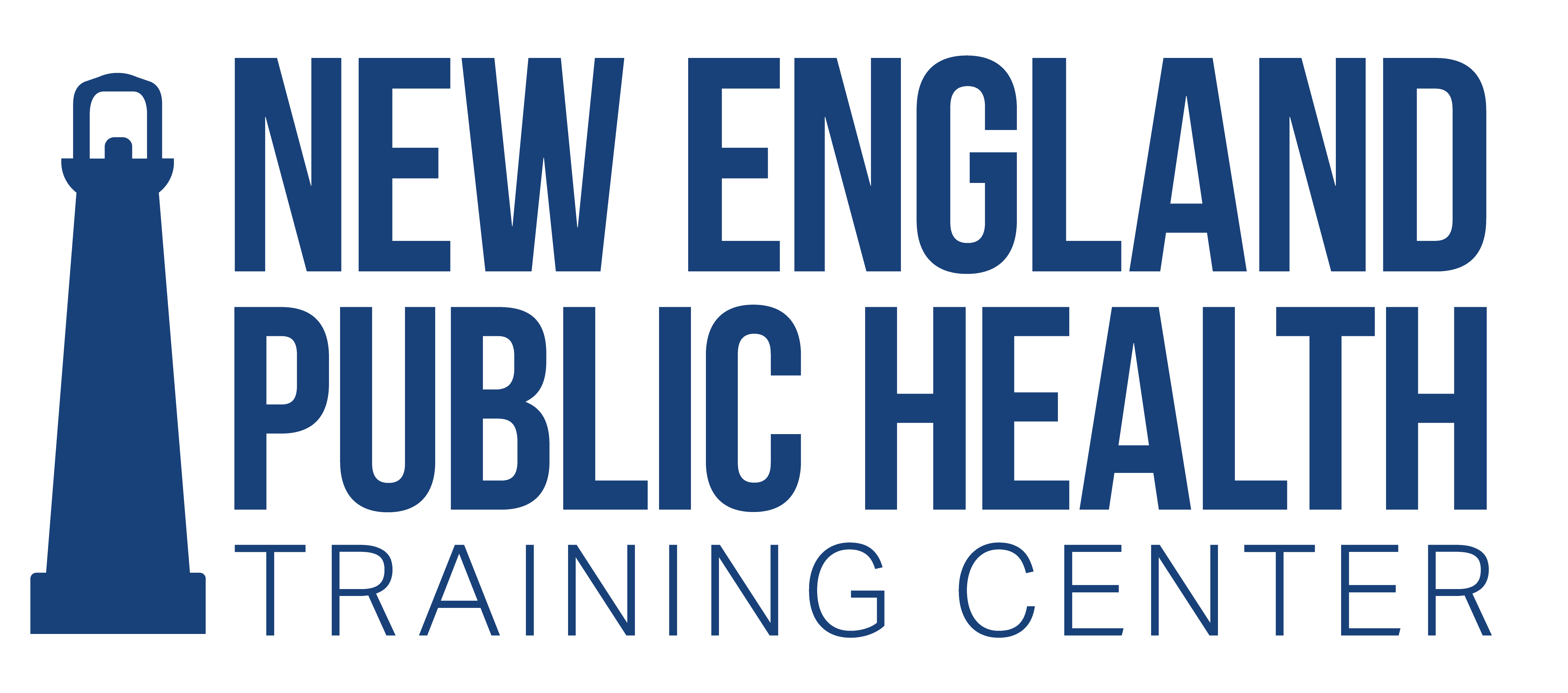
Register
Course Information
- Audience: Public health professionals, human health clinicians, environmental scientists, health scientists, students, community organizers, environmental non-profit workers, and others interested in the health of humans and the environment.
- Format: Webinar
- Date/Time: Thursday, July 20, 2023
12:00 PM – 1:00 PM EST - Price: Free
- Length: 1 hour
- Credential(s) eligible for contact hours: Sponsored by New England Public Health Training Center (NEPHTC), a designated provider of continuing education contact hours (CECH) in health education by the National Commission for Health Education Credentialing, Inc. This program is designated for Certified Health Education Specialists (CHES) and/or Master Certified Health Education Specialists (MCHES) to receive up to 1 total Category I continuing education contact hours. Maximum advanced-level continuing education contact hours are 0. Provider ID: 1131137 Event ID: SS1131137_CH1.If you are not seeking CHES/MCHES contact hours, if you complete the evaluations, you will receive a Certificate of Completion. The Certificate will include the length of the course.
- Competencies: Community Partnership Skills
- Learning Level: Awareness
- Companion Trainings: Environmental Exposures and Health at the Local Level: a case study of Chelsea, MA | Part 2: Air Pollution
- Supplemental materials:PowerPoint
- Pre-requisites: None
About this Webinar
In this Webinar series, you will get to know two important environmental health issues: extreme heat and air pollution. We will discuss important concepts and research methods through case-studies on specific projects conducted in the City of Chelsea, Massachusetts.
What you'll learn
At the end of the webinar, participants will be able to:
- Explain key environmental health concepts, risk factors for various environmental exposures, vulnerable populations, environmental (in)justice, quantitative research methods, qualitative research methods, and community-engaged approaches.
- Demonstrate a deeper understanding of two important environmental exposures of concern in the context of an environmental justice community: extreme heat and air pollution.
- Identify facilitators and barriers that different community partners face when communicating environmental health risks.
- Discuss relevant environmental health policy and regulatory applications.
Subject Matter Experts
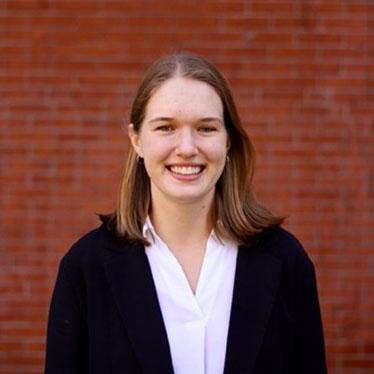
Alina McIntyre
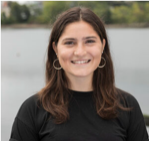
Bianca Navarro Bowman
Alina McIntyre is a Ph.D. Candidate in the Department of Environmental Health at the Boston University School of Public Health. After earning a Bachelor’s degree in both Community Health and Spanish at Tufts University, Alina completed a Master’s degree in Environmental Health and Engineering at the Johns Hopkins Bloomberg School of Public Health. Her research is part of the Chelsea and East Boston Heat Study (C-HEAT), a collaborative project between GreenRoots, Inc. and BUSPH. She is specifically involved in community-engaged heat and air pollution exposure research, drawing on environmental epidemiology, exposure assessment, and qualitative methods.
Bianca Navarro Bowman is the Climate Justice Coordinator at GreenRoots, Inc. She is passionate about building community knowledge, power, and leadership to combat the unequal distribution of the effects of climate change. At GreenRoots, she leads and supports projects that focus on centering resident involvement and perspectives in advancing community climate resilience and adaptation. Bianca loves working with community members and coworkers to improve the ability of EJ populations to safely navigate increasing summer heat temperatures, flood impacts, and decarbonization efforts that threaten to leave low- and middle-income folks and people of color behind in the clean energy transition. She is originally from the Washington, DC area and graduated from the College of William & Mary in Virginia. She studied English Literature and Environmental Science & Policy and has a background in community-based citizen science research, environmental field work and forest fire management work.
Registration
Select the Enroll Me button below to register for this recording. If you have any trouble accessing the recording, contact support@nephtc.org.
Acknowledgement: This project is supported by the Health Resources and Services Administration (HRSA) of the U.S. Department of Health and Human Services (HHS) as part of award 2 UB6HP31685‐05‐00 “Public Health Training Centers.” The contents are those of the author(s) and do not necessarily represent the official views of, nor an endorsement, by HRSA, HHS or the U.S. Government.

Course Information
- Audience: Public health professionals, human health clinicians, environmental scientists, health scientists, students, community organizers, environmental non-profit workers, and others interested in the health of humans and the environment.
- Format: Webinar
- Date/Time: Thursday, July 27, 2023
12:00 PM – 1:00 PM EST. - Price: Free
- Length: 1 hour
- Credential(s) eligible for contact hours: Sponsored by New England Public Health Training Center (NEPHTC), a designated provider of continuing education contact hours (CECH) in health education by the National Commission for Health Education Credentialing, Inc. This program is designated for Certified Health Education Specialists (CHES) and/or Master Certified Health Education Specialists (MCHES) to receive up to 1 total Category I continuing education contact hours. Maximum advanced-level continuing education contact hours are 0. Provider ID: 1131137 Event ID: SS1131137_CH2.If you are not seeking CHES/MCHES contact hours, if you complete the evaluations, you will receive a Certificate of Completion. The Certificate will include the length of the course.
- Competencies: Community Partnership Skills
- Learning Level: Awareness
- Companion Trainings: Environmental Exposures and Health at the Local Level: a case study of Chelsea, MA | Part 1: Extreme Heat:
- Supplemental materials:PowerPoint
- Pre-requisites: None
About this Webinar
In this Webinar series, you will get to know two important environmental health issues: extreme heat and air pollution. We will discuss important concepts and research methods through case-studies on specific projects conducted in the City of Chelsea, Massachusetts.
What you'll learn
At the end of the webinar, participants will be able to:
- Explain key environmental health concepts, risk factors for various environmental exposures, vulnerable populations, environmental (in)justice, quantitative research methods, qualitative research methods, and community-engaged approaches.
- Demonstrate a deeper understanding of two important environmental exposures of concern in the context of an environmental justice community: extreme heat and air pollution.
- Identify facilitators and barriers that different community partners face when communicating environmental health risks.
- Discuss relevant environmental health policy and regulatory applications.
Subject Matter Experts

Alina McIntyre
Alina McIntyre is a Ph.D. Candidate in the Department of Environmental Health at the Boston University School of Public Health. After earning a Bachelor’s degree in both Community Health and Spanish at Tufts University, Alina completed a Master’s degree in Environmental Health and Engineering at the Johns Hopkins Bloomberg School of Public Health. Her research is part of the Chelsea and East Boston Heat Study (C-HEAT), a collaborative project between GreenRoots, Inc. and BUSPH. She is specifically involved in community-engaged heat and air pollution exposure research, drawing on environmental epidemiology, exposure assessment, and qualitative methods.
Registration
Select the Enroll Me button below to register for this recording. If you have any trouble accessing the recording, contact support@nephtc.org.
Acknowledgement: This project is supported by the Health Resources and Services Administration (HRSA) of the U.S. Department of Health and Human Services (HHS) as part of award 2 UB6HP31685‐05‐00 “Public Health Training Centers.” The contents are those of the author(s) and do not necessarily represent the official views of, nor an endorsement, by HRSA, HHS or the U.S. Government.
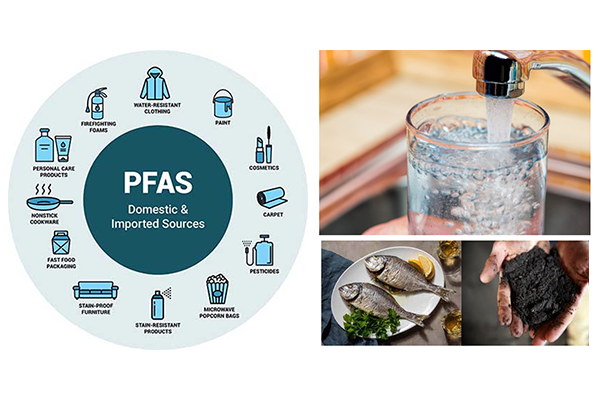
PFAS: So Much Information – What’s Really Needed?
If PFAS were first used in the 1940s, why are we only now learning about PFAS, their use and the health concerns associated with them?


Register
Course Information
- Audience: Public health professionals, human health clinicians, environmental scientists, health scientists, students, community organizers, environmental non-profit workers, and others interested in the health of humans and the environment.
- Format: Webinar
- Date/Time: December 12, 2023 12:00 PM – 1:00 PM EST.
- Price: Free
- Length: 1 hour
- Credential(s) eligible for contact hours: Sponsored by New England Public Health Training Center (NEPHTC), a designated provider of continuing education contact hours (CECH) in health education by the National Commission for Health Education Credentialing, Inc. This program is designated for Certified Health Education Specialists (CHES) and/or Master Certified Health Education Specialists (MCHES) to receive up to 1 total Category I continuing education contact hours. Maximum advanced-level continuing education contact hours are 0. Provider ID: 1131137 Event ID: PM1131137_12122023.If you are not seeking a CHES/MCHES contact hours, if you complete the post-test and evaluation, you will receive a Certificate of Completion. The Certificate will include the length of the course.
- Competencies: Public Health Sciences Skills
- Learning Level: Awareness
- Companion Trainings: None
- Supplemental materials:PowerPoint
- Pre-requisites: None
About this Webinar
In this first session on per and poly fluoroalkyl substances (PFAS), we will focus on identification of PFAS as a large group of chemicals, how PFAS are defined, how people are exposed to a small subset of the PFAS chemicals that are currently regulated in drinking water sources around New England. We will also discuss evidence for population health concerns, as well as efforts being taken in the region to address PFAS.
What you'll learn
At the end of the webinar, participants will be able to:
- Define PFAS and list 6-7 PFA chemicals of importance
- Identify the key exposure sources in people in New England
- Describe the health concerns associated with the 6-7 PFAS chemicals
- Discuss the efforts in New England and federally to address PFAS
Subject Matter Expert
Wendy Heiger-Bernays
Wendy Heiger-Bernays, PhD is Professor of Environmental Health at the BU School of Public Health where she has spent decades applying her expertise in toxicology and risk assessment to research and translation around environmental chemical exposures. She serves as Chair of her local Board of Health, as a member of the Massachusetts Toxics Use Reduction Act Science Advisory Board and is on the Science Advisory Chemicals Committee for the Federal EPA Toxics Substances Control Act.
Registration
Select the Enroll Me button below to register for this recording. If you have any trouble accessing the recording, contact support@nephtc.org.
Acknowledgement: This project is supported by the Health Resources and Services Administration (HRSA) of the U.S. Department of Health and Human Services (HHS) as part of award 2 UB6HP31685‐05‐00 “Public Health Training Centers.” The contents are those of the author(s) and do not necessarily represent the official views of, nor an endorsement, by HRSA, HHS or the U.S. Government.

Retrofits: The Intersection of Housing, Climate, Environmental, Racial, and Gender Equity
Why are housing retrofits at the intersection of housing, environmental, racial and gender equity? And how does climate change influence those relationships?

Register
Course Information
- Audience: All public health professionals working in nonprofits, housing, healthcare, educational institutions, government and private sector
- Format: Webinar
- Date/Time: Thursday, Feburary 1st, 2024 12:00 PM – 1:00 PM ET.
- Price: Free
- Length: 1 hour
- Credential(s) eligible for contact hours: Sponsored by New England Public Health Training Center (NEPHTC), a designated provider of continuing education contact hours (CECH) in health education by the National Commission for Health Education Credentialing, Inc. This program is designated for Certified Health Education Specialists (CHES) and/or Master Certified Health Education Specialists (MCHES) to receive up to 1 total Category I continuing education contact hours. Maximum advanced-level continuing education contact hours are 1. Provider ID: 1131137 Event ID: PM1131137_02012024.
If you are not seeking a CHES/MCHES contact hours, if you complete the post-test and evaluation, you will receive a Certificate of Completion. The Certificate will include the length of the course.
- Competencies: Health Equity Skills
- Learning Level: Awareness
- Companion Trainings: None
- Supplemental materials:None
- Pre-requisites: None
About this Webinar
Maine's aged building stock creates wide spread health challenges including asthma, exposures to toxins in building materials, stress in physical discomfort and vulnerability in extreme weather and anxiety of about heating and cooling costs. The barriers to retrofitting are multi-fold, the rewards of retrofitting combine the health benefits with carbon and reduction as part of our path to our carbon goals. Equitable approaches to improving the built environment are critical. passivhausMAINE is exploring bundling funding sources for systemic approaches to whole building renovation. We are preparing the case for cross/multi department communication and systems to ease the funding barriers and structure scalable retrofits across the state through pilot projects in Freeport and Lewiston, Maine.
What you'll learn
After attending this webinar, participants will be able to:
- Demonstrate the potential for wide scale retrofits through multi-agency funding approaches.
- Analyse the comprehensive benefits of building retrofits to physical and mental health and the corollary benefits of carbon and energy reduction.
- Explore the overlapping issues of housing, gender, racial, education and economic justice.
Subject Matter Experts
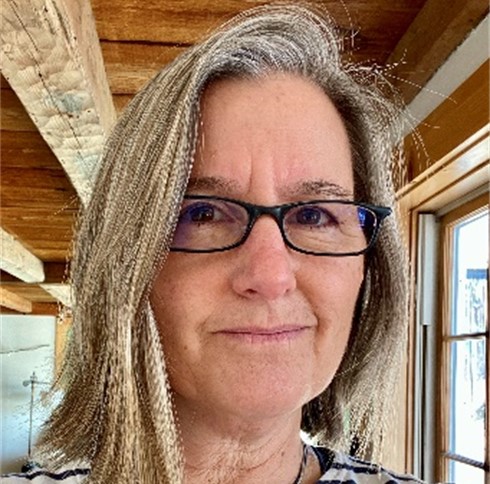
Naomi Beal
Naomi Beal is the Executive Director and founding member of passivhausMAINE [phME] and a founding board member of the Passive House Network. Naomi embraces the challenge of developing phME into a sustainable and impactful organisation through local, national, and international partnerships. Naomi believes Maine’s economic development can be fostered through a framework of building efficiency and innovative and traditional wood products and prioritizes equitable retrofits as both climate mitigation and adaptation. Naomi lives in South Freeport, ME.
Registration
Select the Enroll Me button below to register for this recording. If you have any trouble accessing the recording, contact support@nephtc.org.
Acknowledgement: This project is supported by the Health Resources and Services Administration (HRSA) of the U.S. Department of Health and Human Services (HHS) as part of award 2 UB6HP31685‐05‐00 “Public Health Training Centers.” The contents are those of the author(s) and do not necessarily represent the official views of, nor an endorsement, by HRSA, HHS or the U.S. Government.


Tips to Improve Home Air Quality
What practical guidance do you give to patients/clients/others about how to improve indoor air quality?


Course Information
- Audience: All public health professionals working in nonprofits, healthcare, educational institutions, government and private sector
- Format: Webinar
- Date/Time: Thursday, March 6, 2025 12:00 PM – 1:00 PM ET.
- Price: Free
- Length: 1 hour
- Credential(s) eligible for contact hours: Sponsored by New England Public Health Training Center (NEPHTC), a designated provider of continuing education contact hours (CECH) in health education by the National Commission for Health Education Credentialing, Inc. This program is designated for Certified Health Education Specialists (CHES) and/or Master Certified Health Education Specialists (MCHES) to receive up to 1 total Category I continuing education contact hours. Maximum advanced-level continuing education contact hours are 1. Provider ID: Event ID: .If you are not seeking a CHES/MCHES contact hours, if you complete the post-test and evaluation, you will receive a Certificate of Completion. The Certificate will include the length of the course.
- Competencies: Public Health Sciences Skills
- Learning Level: Awareness
- Companion Trainings: None
- Supplemental materials:None
- Pre-requisites: None
About this Webinar
Thanks to COVID-19, most of us now understand there are things indoors we can’t see or smell, but yet our exposure to them can make us sick. During this session, I will highlight practical, easy to implement strategies to both prevent and address exposures to common indoor air quality pollutants. Topics being addressed include ventilation, mold/moisture, radon, pests, particle pollution, as well as IAQ monitoring, and whether or not a home is weatherization ready.
What you'll learn
- How to determine if a home has adequate ventilation
- 5 things you need to know about mold
- Where to look for IAQ problems
- My favorite best-practice resources to prevent and address IAQ in homes.
-
Subject Matter Expert
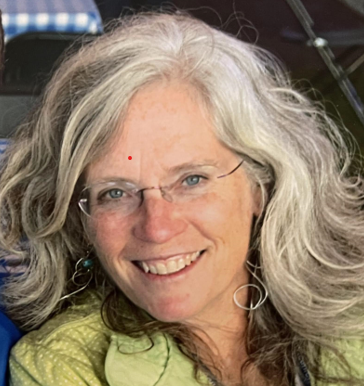 Christy Crocker
Christy Crocker
Christy Crocker is the executive director of the Maine Indoor Air Quality Council (MIAQC), a role she has held since May of 1999. Prior to her work with MIAQC, Christy was the Continuing Legal Education Director for the Maine State Bar Association for 14 years. Christy has extensive expertise in nonprofit administration generally, and adult education design, project management, grant writing, and general communications. Christy is a frequent writer/contributor to Green and Healthy Maine Homes Magazine, and is a member of the Green and Healthy Maine Homes advisory board. Christy has provided numerous presentations on general indoor air quality issues for Maine homes, schools, and workplaces. Christy resides with her family in Hallowell, Maine.
Enrollment and Contact Hours
Select the Enroll button below to register for the course. If you have any trouble accessing the course, contact support@nephtc.org.
Acknowledgement: This project is supported by the Health Resources and Services Administration (HRSA) of the U.S. Department of Health and Human Services (HHS) as part of award 2 UB6HP31685‐05‐00 “Public Health Training Centers.” The contents are those of the author(s) and do not necessarily represent the official views of, nor an endorsement, by HRSA, HHS or the U.S. Government.
This training was supported by the Health Resources and Services Administration (HRSA) of the U.S. Department of Health and Human Services (HHS) as part of a financial assistance award totaling $400,000 with 100% funded by HRSA/HHS and
0% funded by nongovernment source(s). The contents are those of the author(s) and do not necessarily represent the official views of, nor an endorsement, by HRSA/HHS, or the U.S. Government.
* Yale School of Public Health, Office of Public Health Practice, a New England Public Health Training Center partner, is a designated provider of continuing education contact hours (CECH) in health education by the National Commission for Health Education Credentialing, Inc. All CHES credit inquiries are managed by YSPH
Registration
Select the Enroll Me button below to register for this recording. If you have any trouble accessing the recording, contact support@nephtc.org.
Enroll Me
Acknowledgement: This project is supported by the Health Resources and Services Administration (HRSA) of the U.S. Department of Health and Human Services (HHS) as part of award 2 UB6HP31685‐05‐00 “Public Health Training Centers.” The contents are those of the author(s) and do not necessarily represent the official views of, nor an endorsement, by HRSA, HHS or the U.S. Government.








